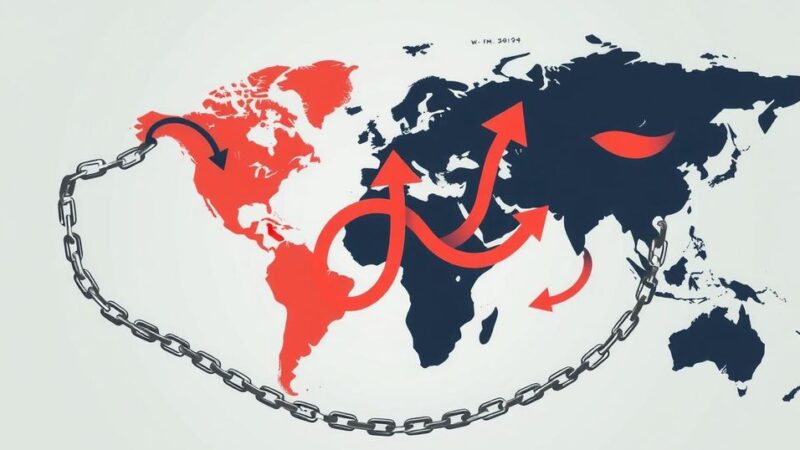Tensions in the Horn of Africa are escalating, especially following Ethiopia’s civil conflicts which began during the 2020 U.S. elections and were briefly mitigated by a 2022 peace accord. Prime Minister Abiy Ahmed’s pursuit of Red Sea access has strained relations with Somalia and drawn Egypt into the fray. Foreign powers like Turkey and the UAE are also engaging in the region, creating a volatile situation with potential global ramifications, highlighting the urgent need for U.S. diplomatic intervention to de-escalate tensions and address ongoing humanitarian crises.
The Horn of Africa is once again confronting rising tensions amidst ongoing geopolitical conflicts. The previous presidential election period in the United States coincided with a period of civil strife in Ethiopia, as hostilities erupted between the Ethiopian central government and the Tigray region. While a cessation of hostilities agreement in 2022 alleviated some of the violence in Tigray, significant unresolved issues remain, particularly concerning the reintegration of displaced populations. Furthermore, the coalition supporting Prime Minister Abiy Ahmed has splintered, leading to persistent instability in the Amhara and Oromia regions. As the United States navigates its election process again, the peril of renewed conflict in the Horn could easily be overlooked. Prime Minister Abiy Ahmed’s aspirations for direct access to the Red Sea have intensified geopolitical dynamics, provoking reactions from neighboring nations. His negotiations with Somaliland for sea access have strained Ethiopia’s traditionally contentious relationship with Somalia. Concurrently, Egypt remains critically concerned about the Grand Ethiopian Renaissance Dam’s implications for Nile water resources, which has led to strengthened military cooperation with Somalia. Eritrea, keen on maintaining regional instability, has also engaged in diplomatic discussions with Egypt and Somalia. Non-African powers are increasingly involved in the tumultuous dynamics of the region. Turkey has reestablished its ties with Somalia, while the United Arab Emirates maintains its affiliations with the Ethiopian government. The interconnected challenges within this historically volatile area heighten the risk of miscalculations that could catalyze renewed conflict, the consequences of which will primarily be borne by African civilians. Furthermore, disruptions to critical international shipping routes due to hostilities will have global economic repercussions, alongside increasing pressures of refugee movements on host countries. The world is already beset by numerous humanitarian crises, with Sudan’s ongoing civil conflict and Somalia’s instability providing fertile ground for non-state actors such as al-Shabaab to flourish. Given the pressing nature of domestic political challenges, it remains imperative for the United States to prioritize efforts in de-escalating regional tensions, discouraging the proliferation of proxy conflicts, and mitigating potential disasters that could further destabilize the region and beyond.
The Horn of Africa has long been characterized by intricate socio-political dynamics and a history of conflicts, particularly in Ethiopia, where tensions have recently escalated due to regional ambitions and the quest for control over vital resources. The ongoing civil war in Tigray has raised concerns regarding national stability and regional security, complicating relationships with neighboring countries such as Somalia and Egypt. Amidst the backdrop of U.S. domestic politics and an evolving international landscape, potential flashpoints remain that could further destabilize the region, necessitating focused attention from global powers, especially the United States.
In summary, the rising tensions in the Horn of Africa pose significant risks not only to the immediate region but also to global stability. With multiple actors, including both regional powers and international stakeholders embroiled in this complex landscape, the potential for conflict escalation remains high. The United States, amidst its internal political dynamics, must act decisively to foster dialogue, mitigate tensions, and address the humanitarian crises that could exacerbate the situation. Ensuring peace and stability in the Horn of Africa is essential for both regional and global well-being.
Original Source: www.cfr.org







